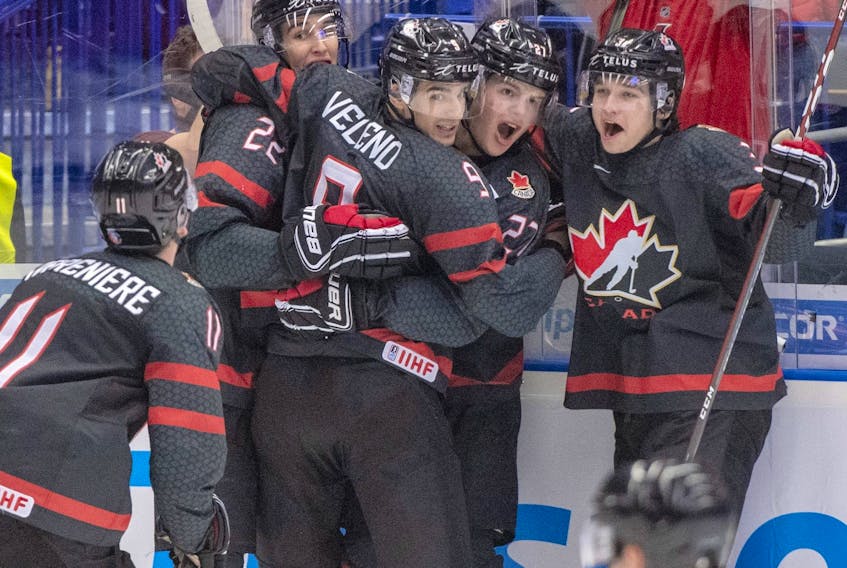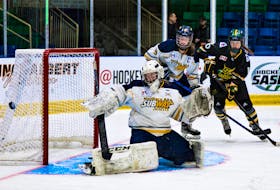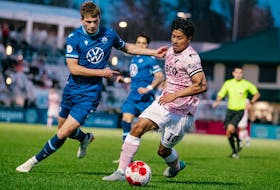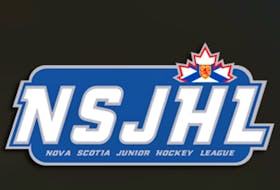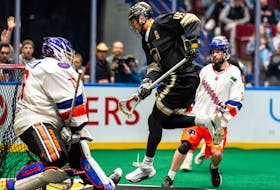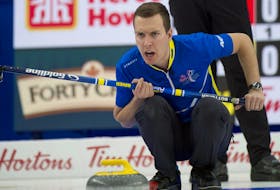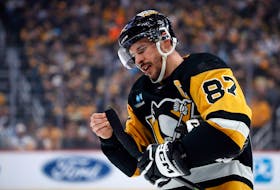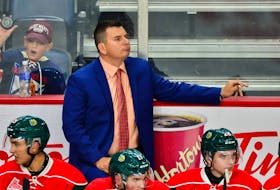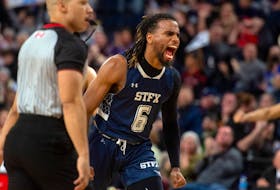Every nation headed to Edmonton for the Hub City 2.0 bubble version of the International Ice Hockey Federation world junior championships has its own unique set of challenges created by the coronavirus pandemic to face before they get here.
But who has the advantage?
Some would suggest this year it has to be the European teams, such as Sweden, Finland and Russia, with players who have been engaged in league play despite COVID-19.
Those observers would suggest Team Canada — the team that begins 51-days together with a training camp beginning Tuesday in Red Deer — might have the greatest challenge.
With Western Hockey League and Ontario Hockey League players yet to start their seasons — ones that won’t begin regular season play until after the Dec. 25-Jan. 5 tournament concludes in Rogers Place — it might reduce or eliminate any advantage of playing at home to defend the title Team Canada won last year in Ostrava, Czech Republic.
Coach Andre Tourigny had his team set to take to the ice in Red Deer for Phase 1 of their world junior training camp Tuesday with enough players for two complete teams. He’ll spend a week whittling that down and the beginning Phase 2 preparing to play in the 10-team tournament running entirely at Rogers Place with no fans in the stands, as was the case with the July, August, September Stanley Cup playoffs.
One coach involved in the tournament isn’t so sure about Canada’s claim of having the biggest challenge.
Russia coach Igor Larionov says he doesn’t believe it’s best to have players competing in league play like his Russian kids are this year, and like Canadian kids normally are with their junior teams in the WHL, OHL and Quebec Major Junior Hockey League.
Indeed, Larionov said he’d rather be in Canada’s position.
“I wish I could say we’d have an advantage this year, but I think back to when I played in those Canada Cups. We had two months to prepare and that really helped against Canada,” said the former member of the Soviet Union’s Big Red Machine.
Scott Salmond, Hockey Canada’s head of hockey ops, says it’s an interesting debate. But he’s not buying.
“We have never had more challenges as an organization in preparing for the tournament,” said Salmond. “Our responsibility is to remove excuses and distractions so that players can focus on playing and coaches can focus on coaching.
“The challenge of WHL and OHL players having not played a game, combined with the distraction of the COVID virus dictated our plan in terms of selection camp. Traditionally, we evaluate players with their club teams, invite them to camp, select them to the team and then prepare for the tournament.
“This year, we are creating an evaluation component with three intra-squad games, reducing our roster, playing another four games against U-Sports teams before selecting our team.
“We will then prepare with a final two U-Sport games and then play our two pre-tournament games against Sweden and Russia before starting the tournament Dec. 26.
“We will accomplish all this with the challenge of COVID testing and maintaining the integrity of a bubble for 51 days over Christmas without family and friends.
“I’m not sure who has the advantage leading up to the tournament, but we sure feel like we are playing catchup with those countries that are playing games and tournaments,” Salmond summed it up.
Sweden general manager Jonas Fransson has his own perspective.
“Our challenge, as is the case with many counties, is to pick a team with players that you haven’t tested on the international stage,” Fransson said from Stockholm. “You can only scout the players in their home environment and that’s often different than playing for the national team. There will be more taking chances when selecting the national teams.”
Fransson doesn’t think bubble hockey with no fans in the stands will affect the European players.
“The lack of fans in Edmonton the first year will be sad,” he said of the exceptional experience of playing in a packed NHL building at a world junior in Canada.
“But I think almost every one is used to it now with all the restrictions in Europe. It won’t even be something we talk about.”
When it comes to Sweden, however, they have seven returning players, including the Edmonton Oilers’ highly touted Philip Broberg who has been having an exceptional season so far.
The other returning players are Hugo Alnefelt, Victor Soderstrom, Tobias Bjornfot, Lucas Raymond, Karl Hendricksson and Alexander Holtz.
“We hope to build a quick team that plays with high speed and an elite team game, and of course, our returning players will be important.”
You get the idea.
Regardless of the nation involved, there’s more than meets the eye and the whole process of getting each team to Edmonton, entering the bubble and getting ready for the Christmas Day start to the tournament may decide what happens once they drop the puck.
E-mail: [email protected]
On Twitter: @byterryjones
Copyright Postmedia Network Inc., 2020

